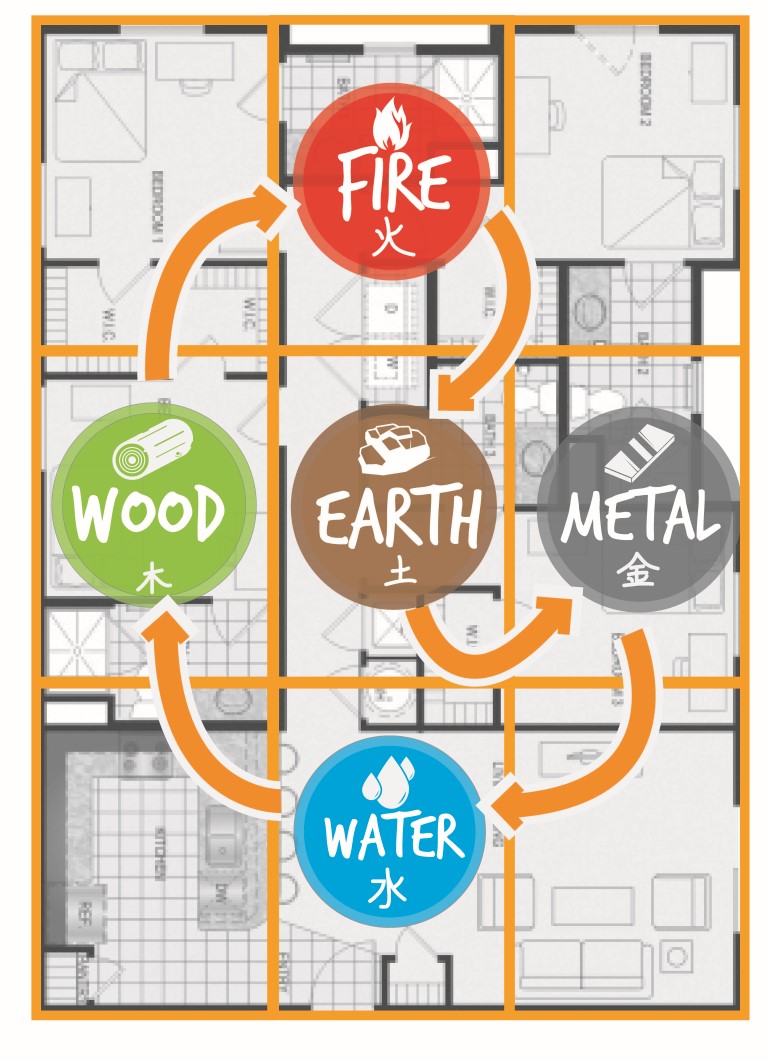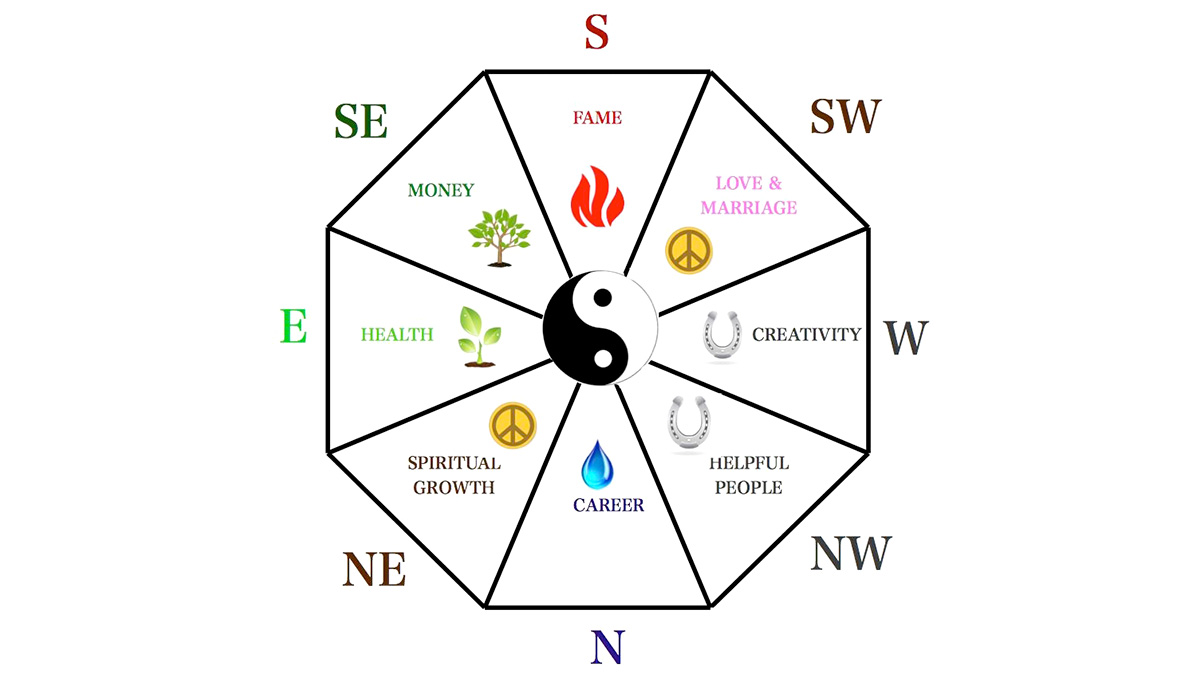Navigating the Flow of Energy: A Comprehensive Guide to Feng Shui for Your Home
Related Articles: Navigating the Flow of Energy: A Comprehensive Guide to Feng Shui for Your Home
Introduction
With enthusiasm, let’s navigate through the intriguing topic related to Navigating the Flow of Energy: A Comprehensive Guide to Feng Shui for Your Home. Let’s weave interesting information and offer fresh perspectives to the readers.
Table of Content
- 1 Related Articles: Navigating the Flow of Energy: A Comprehensive Guide to Feng Shui for Your Home
- 2 Introduction
- 3 Navigating the Flow of Energy: A Comprehensive Guide to Feng Shui for Your Home
- 3.1 Understanding the Feng Shui Map: The Bagua
- 3.2 Applying the Bagua to Your Home
- 3.3 Feng Shui Elements and Their Impact
- 3.4 Feng Shui Tips for Optimizing Your Home
- 3.5 FAQs Regarding Feng Shui for Homes
- 3.6 Conclusion
- 4 Closure
Navigating the Flow of Energy: A Comprehensive Guide to Feng Shui for Your Home

Feng shui, an ancient Chinese practice, translates to "wind and water" and focuses on harnessing the flow of energy, or "chi," within a space. It proposes that the arrangement of furniture, colors, and elements within a home can impact the well-being of its inhabitants. While often perceived as a mystical art, the principles of feng shui are grounded in logic and observation, offering a framework for creating a harmonious and balanced living environment.
Understanding the Feng Shui Map: The Bagua
The cornerstone of feng shui for a house is the Bagua, a map that divides a space into nine distinct areas, each representing a specific aspect of life. These areas are:
- Career & Path: Located at the back of the house, this area governs professional success, ambitions, and personal growth.
- Knowledge & Self-Cultivation: Situated to the right of the Career area, this sector influences intellectual pursuits, education, and personal development.
- Family & Health: Found in the center of the house, this area represents the core of the household, fostering harmony, well-being, and strong relationships.
- Wealth & Prosperity: Situated to the left of the Career area, this sector relates to financial abundance, opportunities, and material well-being.
- Love & Relationships: Located at the front of the house, this area influences romantic partnerships, personal connections, and social interactions.
- Creativity & Children: Found to the right of the Love area, this sector promotes inspiration, joy, and the expression of artistic talents.
- Helpful People & Travel: Situated to the left of the Love area, this sector governs connections with helpful individuals, travel experiences, and opportunities for expansion.
- Fame & Reputation: Located at the back of the house, this area influences recognition, public image, and personal achievements.
- Spirituality & Inspiration: Situated at the front of the house, this sector fosters inner peace, spiritual growth, and a connection to the divine.
Applying the Bagua to Your Home
The Bagua can be applied to any space, from a single room to an entire house. The most common method involves overlaying the Bagua map onto a floor plan of your home. This allows you to identify the specific areas that correspond to each life aspect.
Determining the "Front" of Your House: The front of your home is not necessarily the entrance door but rather the direction that faces the main street or the direction from which you approach your house.
Adjusting the Bagua for Irregular Shapes: For homes with unusual shapes or multiple levels, the Bagua may need to be adjusted. Consulting a qualified feng shui practitioner can help determine the most appropriate placement for your unique situation.
Feng Shui Elements and Their Impact
Feng Shui utilizes the five elements – Wood, Fire, Earth, Metal, and Water – to create balance and harmony. Each element has its own characteristics and influences, and their interactions play a crucial role in shaping the energy of a space.
- Wood: Associated with growth, expansion, and creativity, Wood is represented by green, brown, and blue colors. It nourishes Fire and weakens Earth.
- Fire: Representing passion, energy, and enthusiasm, Fire is symbolized by red, orange, and yellow colors. It nourishes Earth and weakens Metal.
- Earth: Associated with stability, grounding, and practicality, Earth is represented by brown, yellow, and orange colors. It nourishes Metal and weakens Water.
- Metal: Representing clarity, focus, and discipline, Metal is symbolized by white, silver, and gray colors. It nourishes Water and weakens Wood.
- Water: Associated with flow, adaptability, and intuition, Water is represented by blue, black, and dark colors. It nourishes Wood and weakens Fire.
By understanding the relationships between these elements, you can strategically incorporate them into your home to create a harmonious environment that supports your desired outcomes.
Feng Shui Tips for Optimizing Your Home
- Declutter and Cleanse: Clutter blocks the flow of energy, so decluttering and cleaning your home is essential. Regularly removing unwanted items and clearing out dust and dirt helps create a fresh and inviting atmosphere.
- Embrace Natural Light: Allow natural light to fill your home, enhancing the flow of energy and creating a sense of openness and positivity.
- Use Mirrors Strategically: Mirrors reflect light and energy, making small spaces feel larger and amplifying positive energy.
- Incorporate Plants: Plants bring life and vitality to a space, promoting a sense of well-being and harmony.
- Pay Attention to Colors: Colors have a significant impact on mood and energy. Choose colors that resonate with the desired energy for each area of your home.
- Balance the Elements: Strategically incorporate the five elements into your home to create a harmonious balance. For example, placing a water feature in the Wealth area can enhance financial abundance.
- Enhance the Entrance: The entrance to your home is considered the "mouth of chi," so ensure it is welcoming and free of clutter.
- Activate the "Sleeping Position": According to Feng Shui, the ideal sleeping position is with your head facing north.
- Respect the "Commanding Position": In Feng Shui, the commanding position is a place where you can see the entrance to a room without being directly in line with the door. This position is considered empowering and promotes a sense of control.
- Consider the "Flying Star" Chart: The Flying Star chart is a more advanced technique that analyzes the energy of a space based on its specific location and time of construction. Consulting a qualified practitioner can help you utilize this chart to optimize your home.
FAQs Regarding Feng Shui for Homes
Q: Can I apply Feng Shui to my apartment?
A: Absolutely! Feng Shui principles can be applied to any space, regardless of size or ownership. Even in an apartment, you can create a harmonious environment by focusing on the layout, colors, and elements within your control.
Q: How do I know if my house has "bad Feng Shui"?
A: Signs of "bad Feng Shui" can include:
- Clutter and disorganization: Clutter obstructs the flow of energy and can lead to feelings of stagnation and overwhelm.
- Sharp corners and edges: Sharp angles can create negative energy flow, leading to arguments and tension.
- Broken or damaged items: Broken or damaged items represent stagnation and negativity. It’s essential to repair or remove these items promptly.
- Unbalanced elements: An imbalance in the five elements can create an uneven energy flow, impacting different aspects of life.
- Negative energy sources: Sources like electromagnetic fields (EMFs) from electronics or negative emotions can also disrupt the flow of energy.
Q: Can I apply Feng Shui myself, or should I consult a practitioner?
A: While many aspects of Feng Shui can be implemented independently, consulting a qualified practitioner can provide personalized guidance and address specific concerns. A practitioner can analyze your home, identify areas for improvement, and offer tailored solutions based on your individual needs and goals.
Q: How long does it take to see results from applying Feng Shui?
A: The impact of Feng Shui can vary depending on the specific changes implemented and the individual’s energy field. Some people may experience noticeable changes within a few weeks, while others may take longer to see results. Consistency in applying the principles and maintaining a positive mindset is key.
Conclusion
Feng Shui is a powerful tool for creating a harmonious and supportive living environment. By understanding the principles of the Bagua, the five elements, and the various tips and techniques, you can enhance the flow of energy in your home and positively impact your well-being, relationships, and overall life experience. Remember, Feng Shui is not a one-size-fits-all solution but a personalized approach that requires observation, intention, and a willingness to adapt to create a space that truly nourishes your soul.








Closure
Thus, we hope this article has provided valuable insights into Navigating the Flow of Energy: A Comprehensive Guide to Feng Shui for Your Home. We thank you for taking the time to read this article. See you in our next article!